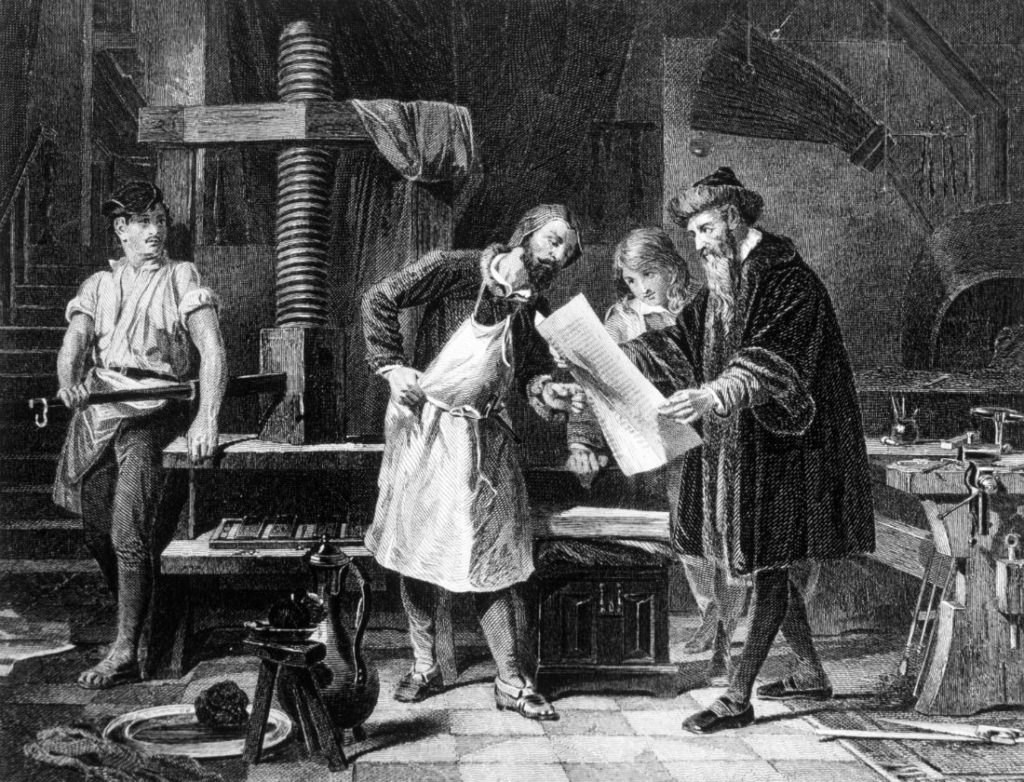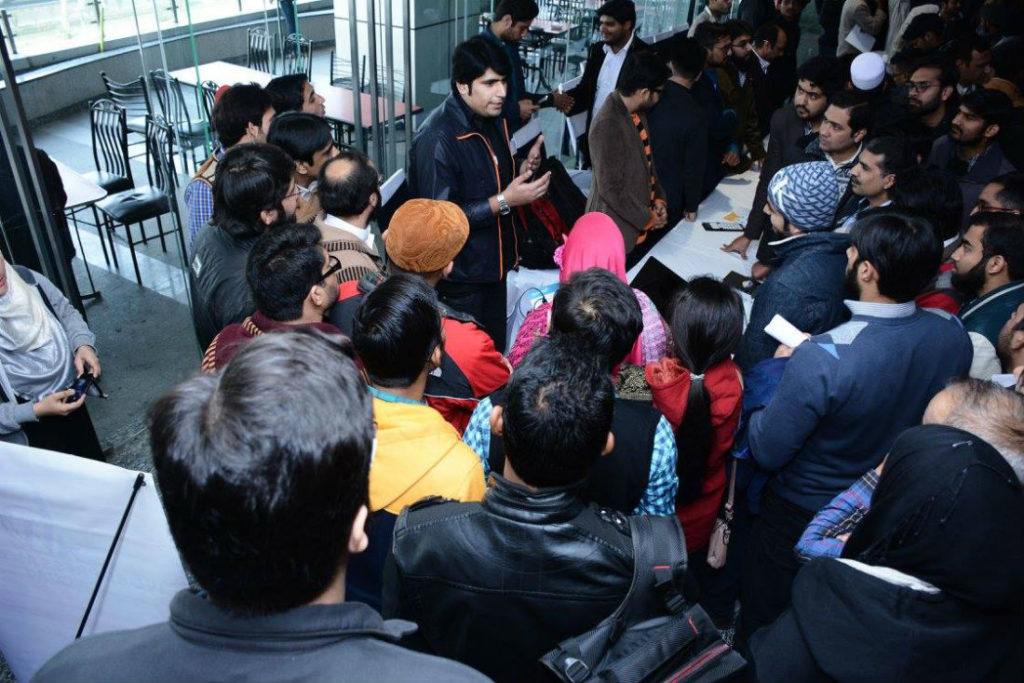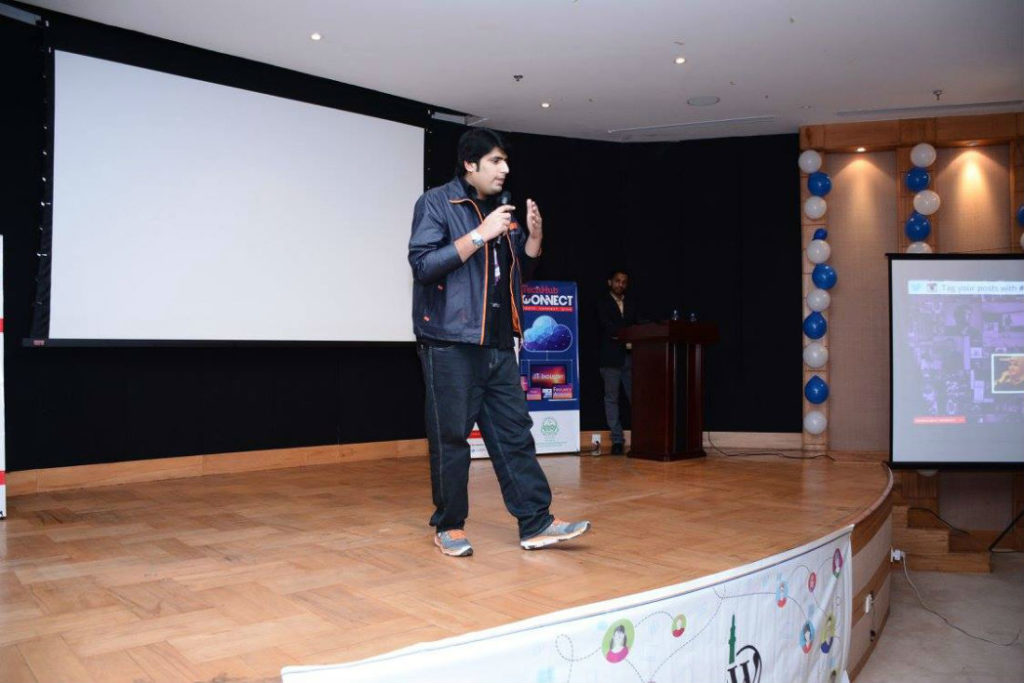Faces of WordPress is a community-centered project that celebrates the people behind WordPress and the projects they create that collectively drive WordPress forward in a way that directly benefits the community or the core software. Share your WordPress story here.
During last year’s State of the Word speech, Matt Mullenweg emphasized three main focus points for WordPress in 2017, the editor, customizer, and the REST API. The WordPress REST API and the customizer have been extensively discussed over the last year, but the same can’t be said for the WordPress editor. WordPress began as a blogging platform, and while it’s grown to power more than 28 percent of the web, it still holds those roots very dear.
That’s why community members, including Ahmad Awais, are working on the Gutenberg Editor. A project aimed at making the editor even easier to use.
The editor is a huge part of what makes WordPress so easy to adopt. Beginners can publish a blog post or product description in very little time as is, but the team behind Gutenberg realizes there is room for improvement.
What is the Gutenberg Project?
According to design lead Joen Asmussen, “We are working hard to improve the WordPress editor for everyone. To do that we are employing a ‘block’ based interface to help surface features which in the past would require custom HTML or shortcodes. It’s a big undertaking, and we appreciate contributions.”
The current design is pretty straightforward and the writing experience will now be handled with a block-like layout.
Making Writing Easier
Many people find their way to WordPress to start a blog, and even if that isn’t their initial goal, most companies now have blogs attached to their websites. That’s why Awais got involved with the project.
“I write a lot,” he said. “This means, that I have spent quite a lot of time choosing the tools I write with. No matter what I did, I always ended up dealing with the WordPress editor — and boy it’s outdated.”
That’s when he began building a better version. “I set out to build a new WordPress Editor, I was about 43 percent complete with the initial release milestones when Matt Mullenweg announced that core is going to update the editor,” he said. “I stopped working on my personal product and got in touch with the WordPress design team working on Gutenberg. Joen and others were very helpful. I have been in the team meetings, and have covered core editor meeting notes as well. So, far it’s been great.”
Awais has been involved with WordPress since 2005.
“Back in 2005, I was working with Joomla when I got a client for WordPress. I had written a blog post on building a PHP contact form and he wanted the same thing but done with WordPress,” he said.
Awais was soon hooked and started working exclusively with WordPress. Over the next five years, he began giving talks about the CMS and became heavily involved with the community. This allowed him to become a core contributer for every major release since 4.2, and take a large role in Gutenberg.
He saw the value of the community, and how it has made WordPress what is today. That’s why he urges anyone who has time to commit to something, whether it’s core or Gutenberg itself.
How to Contribute
The Gutenberg project is far too important to be ignored because almost everyone who uses WordPress uses the WordPress editor in some way.
A good place to start is having a look at the current mockups and the UI prototype, or check out the GitHub repository.
The most fundamental step towards contributing to Gutenberg is keeping a pulse on the status of the project. You can stay informed by attending the Editor Weekly Chat. Just follow along with the schedule on WordPress.org/meetings to view upcoming meetings for all projects including the Editor.
The current prototype of Gutenberg is hosted on GitHub where you can report bugs or make feature requests. You can toy around with its code and be a part of all the discussions.
Why it Matters
Improving the editor is not just a part of WordPress’s roadmap for 2017, it will make it easier for the CMS to take over the rest of the web.
“I think WordPress has a lot of strong competitors, Wix, SquareSpace, Medium, etc. WordPress was initially meant for blogging, and it has always been the biggest niche for where WordPress gets used the most,” Awais said. “That means, writing content is the most important part of WordPress — which now is getting a huge update with the Gutenberg editor.”
With the community’s help, the editor will be something that anyone of any skill level can use. That means more blogs, online stores, nonprofit organizations, and more will find it easier to get off the ground.
“If all goes well, we’ll have an editor that will not only help people write easily but will have a ripple effect on the growth of WordPress platform itself,” said Awais.
Head to Faces of WordPress for more profiles.




No Comments